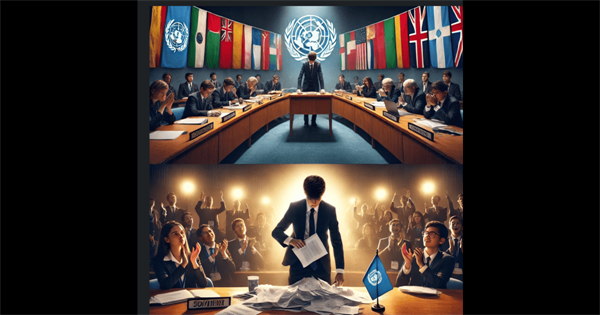
From Frustration to Recognition: A Delegate's Journey to MUN Success
Six MUN conferences and many hours of preparation had not helped me to get one honour. Hope would fly through me every time I entered those great committee rooms, only to be devastated at the closing ceremony by the declaration of winners.
The continual letdown was starting to drag me down and cause me doubt about my skills and whether I really belonged on the MUN circuit.
Understanding the Pain Points
Research Without Guidance
My first big insight was that I wasn't doing it efficiently even though I spent hours looking at my designated countries and subjects. I would gather enormous volumes of data but find it difficult to apply it in arguments. My studies lacked direction; I was gathering information without knowing how to weaponize it for committee meetings.
The Puzzle of Participation
My attitude in collaborating presented still another major obstacle. Either I would stay too quiet, scared of more seasoned delegates, or spoke too often without really offering anything to the conversation. It seemed impossible to strike the ideal balance, and I frequently found myself buried in the intricate dynamics of committee meetings.
Coalition Development Challenges
Not being able to create solid coalitions was maybe the most annoying feature. While other delegates connected effortlessly at unmoderated caucuses, I discovered myself either too bashful to approach people or unable to keep the contacts I did create. This greatly reduced my capacity to persuade others of my ideas and shape resolutions.
The Synthetic Syndrome
Every high school MUN conferences, the weight of not winning got more severe. Sitting empty-handed fed into a mounting sense of inadequacy, I watched first-time delegates leave with trophies. The imposter syndrome was real, and it started to seriously impair my performance.
The Turning Point: Solutions That Work
Method of Strategic Research
At last, I realised that good research is more about quality than about volume. I created a one-page country attitude statement, noting three important partners and three possible adversaries, and draughting certain policy recommendations that fit the interests of my nation. This deliberate approach helped me to make more effective interventions and to defend my positions.
Speeches: Quality Above Number
I started emphasising making significant contributions instead than attempting to talk at every chance. I created a "three-point rule" to make sure any speech I gave included either a fresh viewpoint, a fix for a brought-up issue, or a critical examination of current suggestions. This strategy let me stand out without overpowering the committee.
Developing the Skill of Networking
Making an "elevator pitch" for my country's position and main ideas changed my networking strategy. I began one-on-one approaching delegates during unmoderated caucuses before grouping more people. This approach provided me more confidence in group meetings and helped me create closer, more significant alliances.
Using Feedback
I started aggressively looking for comments from chairs and seasoned delegates following every conference. I began compiling a "MUN journal" in which I recorded particular areas for development, what worked and what didn't. This methodical approach to learning helped me spot trends in my performance and more successfully solve flaws.
The Way to Success
Along with honing technical skills, the road to earning my first MUN award was one of emotional resilience development and realising that high school MUN conferences isn't determined just by medals. Not only did I get better but I also started to enjoy the experience more by concentrating on meaningful involvement, developing real relationships, and keeping a growth attitude.
When I at last received my first award—a Verbal Mention at a regional conference—it was not only the accolades that seemed fulfilling. It was the sense that, with relentless effort and calculated improvement, I had conquered my challenges. The trip let me realise that sometimes our own methods and attitudes are our main challenges, not those of our rivals.
Remember that every seasoned delegate started somewhere for those currently working for their first award. Emphasise small changes, progress from every conference, and don't let lack of honours define your development. Your improving diplomatic, public speaking, critical thinking, and resilience skills are significantly more worth than any certificate or award.
High school MUN conferences is about developing as a diplomat, speaker, and leader—not only about earning medals. Still, with the correct strategy, commitment, and attitude, that sought-after award will finally arrive. And when it does, you will find that the path to get there imparted far more lessons than the accolade itself offers.
Also Read : How to Create the Best Impression in National MUN
Related Blogs
-
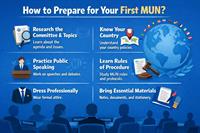
19-Jan-2026 How to Prepare for Your First MUN?
-
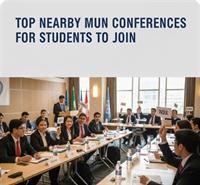
24-Dec-2025 Top Nearby MUN Conferences for Students to Join
-
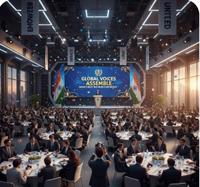
27-Nov-2025 Global Voices Assemble India Next Big MUN Conference
-
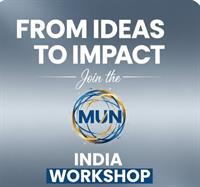
13-Nov-2025 From Ideas to Impact Join the MUN India Workshop
-
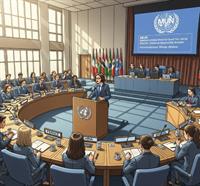
14-Aug-2025 What Is A Conference In MUN?
-
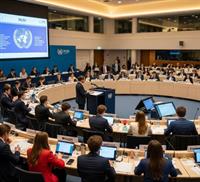
07-Aug-2025 What Does the MUN Do?
-
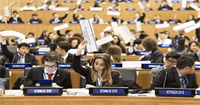
03-Jul-2025 Ways to Research for a Model UN Position Paper
-

28-Mar-2025 What skills do you gain from Model United Nations?
